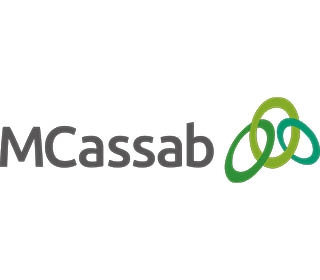Future Food-Tech Summit: Cargill weighs in on “tug-of-war” between meat and plant-based proteins
“Big Food” businesses – established players in the protein market – are notably making fast moves into the dynamic arena for meat alternatives.
The Future Food-Tech Summit kicked off its virtual event with a panel discussion hosted by Cargill and Restaurant Brands International, examining the transition of the plant-based movement from an early trend to a mass market concept.
The speakers address questions about what might appear to consumers as a “tug of war” within a company specializing in plant-based meat while also managing huge investments in traditional animal products like meat.
“We’re driven by what the consumer wants and if the consumer wants more choices, we’re going to have to offer more choices. As a leader in protein, you want to make sure that we have multiple offerings to make sure that the consumer is happy,” responds Florian Schattenmann, chief technology officer and vice president of R&D and innovation at Cargill.
“I think it will be impossible to pick a winner [between animal and plant-based proteins]. We don’t want to pick a winner. We think that all of these different types of product offerings will be in demand. And the nice thing is that, overall, protein is a huge growth platform,” he notes.
“Over the next ten years, we expect to see double digit growth in alternative protein, while we expect to see this to be up by 50 percent over the next few decades.”
Regional differences in plant-based appetites
A point of discussion in the presentation were the similarities in the rate of maturation of the plant-based movement across different geographies.
“It has different speeds across different countries,” responds Antonio Marques, chief marketing officer of Restaurant Brands International EMEA. “If we look to the northern part of Europe, the trend there is stronger. When you look at Russia, for instance, that trend is coming slowly. So there’s definitely different speeds across the nation.”
China, as highlighted in previous FoodIngredientsFirst coverage, has emerged as a growth market in focus over the last year. This summer, Yum China partnered with Beyond Meat to introduce the Beyond Burger as a limited-time offering at select KFC, Pizza Hut and Taco Bell locations across the nation.
In April, KFC tested plant-based chicken nuggets at select stores in Shanghai, Guangzhou, and Shenzhen. Meanwhile, last December, Taco Bell tested a plant-based pork taco at select stores in Shanghai.
To effectively convey plant-based messaging for foodservice customers, Marques notes that consistently optimizing menu boards to have a very simple messaging as simple as possible is essential. Whether viewed digitally or at the drive-thru, consumers seek quickly digestible content detailing what is on offer.
Plant-based line pricing
On the topic of affordability, the speakers flag a “crunch issue” moving beyond the novelty phase of meat analogs. In this context, Marques notes that keeping plant-based menu prices comparable to animal-based offerings remains a key focus for Burger King, so that consumers will not have difficulty choosing on the basis of their dietary preferences.
“This is our overall logic,” he remarks. “And actually, with the plant-based Whopper, we’re basically line pricing it versus the normal Whopper. We want to make this option very affordable, democratic and accessible for everybody, like all our other products. So we’re actually making an effort to make it line price so people can simply choose what fits their lifestyle without going into a premium on that.”
In partnership with Unilever’s The Vegetarian Butcher, Burger King rolled out its Rebel Whopper in over 2,500 Burger King restaurants across 25 countries in Europe. Unilever acquired the Netherlands-headquartered meat alternative innovator in 2018 as part of its strategy to expand its portfolio into the burgeoning sector.
Forecast for traditional meats
Neither companies forecast the end of the animal meat industry or anticipate that a majority of consumers will lean into the plant-based meat trend.
“I think that's pretty accurate,” replies Schattenmann at Cargill. “Partly because animal protein is in such a large base today. We also see a lot of growth of the middle class in regions like Asia-Pacific that are really getting more and more excited about animal protein.”
“And if we continue to hold our ground and increase the sustainability footprint of the animal protein platform, we see that Mother Nature has done a really nice job to create a very effective protein in that way. [The animal meat sector] continues to be a main pillar for the foreseeable future.”
The Plant-Based Revolution is pegged as a Top Trend for 2020 by Innova Market Insights. Demand for meat and dairy alternatives evidently remained bolstered during the pandemic, while the sector is poised for expansion into new product categories, such as seafood analogs.
Food: Food Ingredients First
























